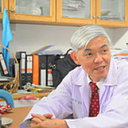Partially Purified Gloriosa superba Peptides Inhibit Colon Cancer Cell Viability by Inducing Apoptosis Through p53 Upregulation.
Ključne riječi
Sažetak
Colon cancer is a major health problem worldwide. Available treatments such as surgery, chemotherapy, radiation and anticancer drugs are limited due to stage of cancer, side effects and altered biodistribution. The use of peptides extracted from natural products has appeared as a potential therapy. Gloriosa superba is known to contain colchicine and other alkaloids with anticancer activity. However, these peptides contained within the extracts have not been studied. This study, therefore, focuses on an investigation of anti-colon cancer activity from a partially purified protein hydrolysate of G superba rhizome.
Dried G superba rhizome was extracted using 0.5% sodium dodecyl sulfate and digested with pepsin. The protein hydrolysates with molecular weight lesser than 3kDa were collected and subjected for cell viability assay. Then, the partial purification of the protein hydrolysate was performed using reverse-phase high-performance liquid chromatography. Fractions containing anticancer peptides were investigated, and their effects on apoptosis and protein expression using apoptosis test and Western blot, respectively.
Partially purified peptides of G superba rhizome demonstrated anticolon activity in SW620 cells by inducing apoptosis through upregulation of p53 and downregulation of nuclear factor kappa B (NF-κB).
Consequently, G superba peptides showed high potential for further purification and development of anticolon therapeutics.


